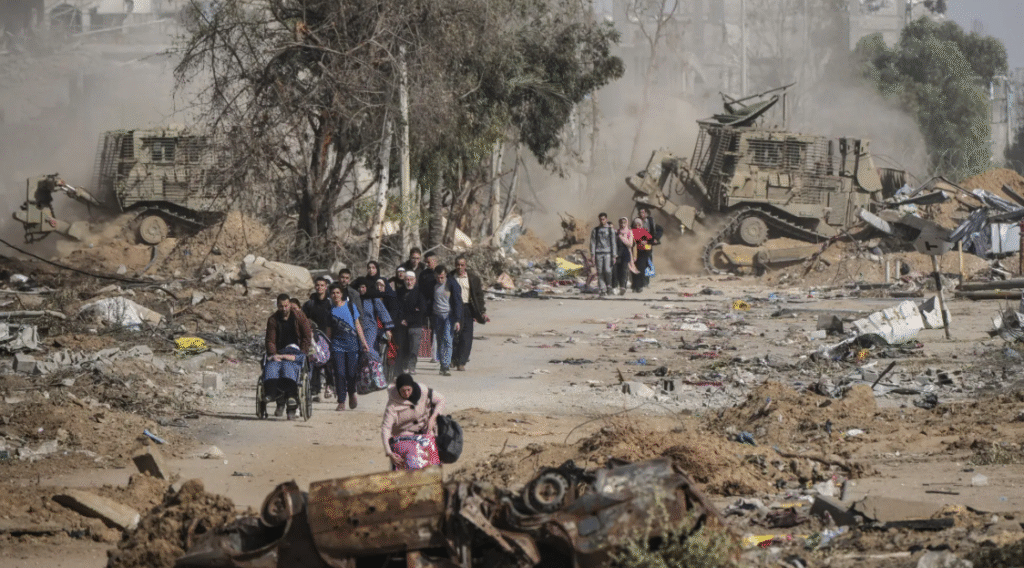European Union delivered a stark warning although there have been small humanitarian advances in Gaza, the overall situation remains dire and far from stable. Their assessment comes amid modest progress and tremendous obstacles that continue to threaten civilian lives.
Modest Improvements Amid Deep Humanitarian Failure
The EU’s latest report acknowledged limited progress after recent agreements with Israel to open aid routes and deliver essential supplies. Fuel deliveries have resumed, and crossings like Zikim and paths through Egypt and Jordan are reopening.

Some roads and bakeries have been restored, and more aid trucks are entering the enclave. Still, these gains are overshadowed by major barriers looting, airstrikes targeting UN and NGO facilities, and a lack of safe zones for distributing aid at scale.All these factors continue to cripple life-saving operations in Gaza.
Water Crisis Worsens, with Only 3–5 Liters Consumed Daily
A new Reuters report highlights the collapsing water infrastructure in Gaza. Without reliable electricity, most people have lost access to clean water and rely on contaminated aquifers or limited aid-run desalination units. Gazans use just 3 to 5 liters of water per day, compared to 165 liters per person in Israel. Meanwhile, waterborne diseases have surged more than 150% in recent months.

The World Health Organization reports that nearly 12,000 children under age five are suffering from acute malnutrition marking Gaza’s worst monthly rate ever. Among these, approximately 2,500 are severely malnourished. Admissions for malnutrition treatment nearly doubled from 6,300 in June to 11,900 in July. UNICEF warns of developing famine as 81% of households report insufficient nutrition up from 33% earlier this year.
Urgent International Appeals for Ceasefire and Better Aid Access
International pressure is mounting. A global movement, involving 28 countries and EU leaders, now calls for an immediate ceasefire and a political roadmap toward peace, citing the widening humanitarian catastrophe.
Meanwhile, aid access remains significantly lower than promised under the EU-Israel agreement: daily fuel trucks average around 125,000 liters versus the agreed 196,000 liters.
Humanitarian officials note that while such volumes are technically enough for critical operations, they fall short of sustaining broader relief programs.
Despite minor positive developments, Gaza’s humanitarian crisis remains one of the most severe in recent memory. Water scarcity, rising disease, and surging child malnutrition paint a dire picture that demands urgent international response.
EU’s warning underscores that delivering on humanitarian promises requires far more than negotiations it needs actionable commitment, safe access, and expanded lifesaving aid.


 Israeli Strikes Intensify as Gaza Offensive Expands
Israeli Strikes Intensify as Gaza Offensive Expands  Voices against Gaza offensive grow louder in Israel
Voices against Gaza offensive grow louder in Israel  Pakistan’s Prime Minister Strongly Criticizes Israel’s Gaza Decision
Pakistan’s Prime Minister Strongly Criticizes Israel’s Gaza Decision  Pakistan Assembly Voices Support for Gaza
Pakistan Assembly Voices Support for Gaza  Gaza Crisis Is a Test of Humanity, Says Malaysian Prime Minister
Gaza Crisis Is a Test of Humanity, Says Malaysian Prime Minister  Trump Plans to Relocate 1 Million Palestinians in Libya?
Trump Plans to Relocate 1 Million Palestinians in Libya?